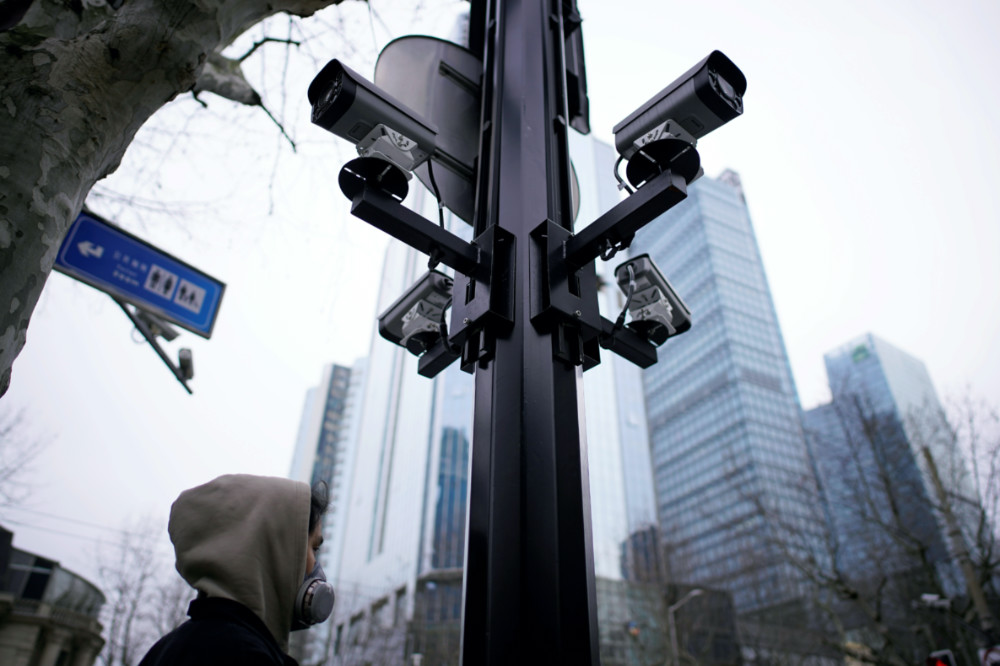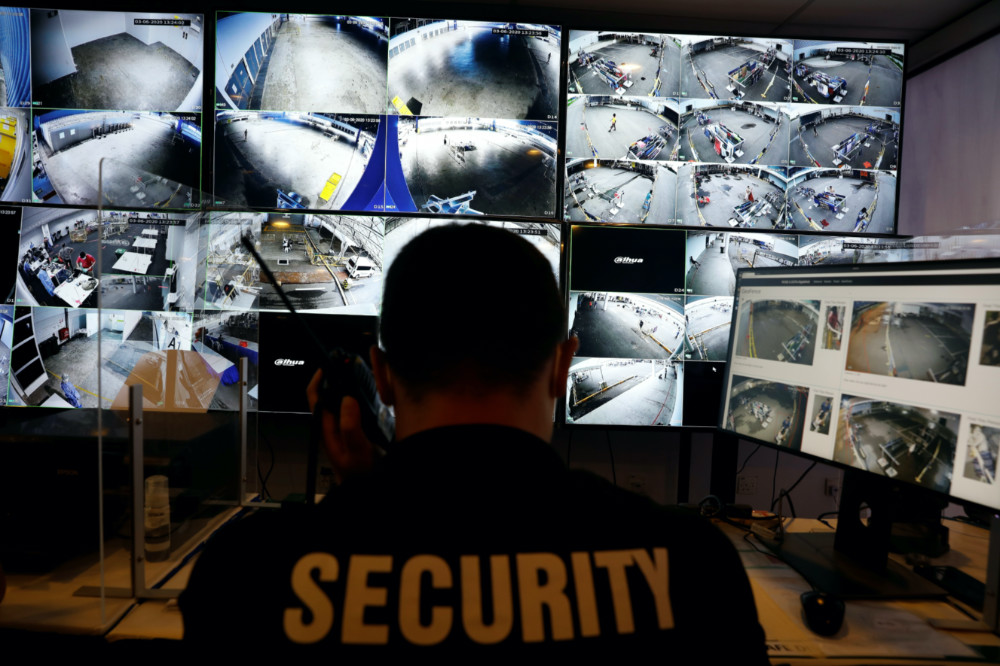Bangkok, Thailand
Thomson Reuters Foundation
From Cambodia to India and the Philippines, countries in Asia have introduced a slew of internet and data use legislation in recent months, with human rights group warning the measures raise the risk of mass surveillance and free speech violations.
More than six nations have launched contact tracing systems during the pandemic – mostly without adequately safeguarding data privacy and security, campaigners say, and there have been numerous internet shutdowns and content blocks on social media and websites.
“Human rights violations in the region have moved into the digital space,” said Sutawan Chanprasert, founder of DigitalReach, a digital rights organisation in Bangkok.
“The trend of governments adopting laws to increase surveillance and curtail digital freedom will likely continue, threatening freedom of expression and information, threatening privacy, and putting digital security at risk,” she said.

A man wearing a protective face mask walks under surveillance cameras as China is hit by an outbreak of the novel coronavirus, in Shanghai, China, on 4th March, 2020. PICTURE: Reuters/Aly Song/File photo.
Here are some of the regulations and draft laws that have been introduced:
Myanmar cyber law
Myanmar’s military proposed new cyber laws just days after ousting the elected government of Aung San Suu Kyi, seeking sweeping powers to access user data, block websites, order internet shutdowns, and imprison critics.
The draft law requires online service providers to keep a broad range of user data, including the person’s name, ID card number, and physical address, for up to three years. Companies must provide the data to authorities when requested.
Online service providers are also required to block or remove a wide range of information at the instruction of authorities, including “misinformation and disinformation”, information “causing hate, disrupting the unity, stabilisation and peace,” and statements “against any existing law”.
Authorities said the proposed bill aims to protect the public, and prevent crime and the use of electronic technology to harm the state or its stability.
The “draconian” bill would hand the military “almost unlimited power to access user data, putting anyone who speaks out at risk”, said Linda Lakhdhir, Asia legal advisor at Human Rights Watch.
Cambodia internet gateway
Cambodia last week established a China-style national internet gateway that will let all online traffic be controlled and monitored, which rights groups said would be a tool for long-time leader Hun Sen to stifle dissent.
It requires service providers to make users complete online forms with their correct identities, and says failure to connect networks to the gateway within a year would result in operating licenses being suspended and bank accounts frozen.
The decree “will restrict the fundamental rights and freedoms of people, especially the freedom of expression, the right of access to information, the right to privacy, and online democratic expression”, more than 60 local human rights groups said in a statement.
Authorities said the decree does not authorise the collection of user data or restrict freedom of expression.
Cambodia cybercrime bill
A draft cybercrime law, the details of which have not been made public, threatens increased surveillance of internet users, privacy rights, and free speech online, human rights groups say.
The proposals include three years in prison for intentional false statements that have an “adverse effect” on national security; public health, public safety, or public finances; the results of a national election; that incite racial hostility, hatred or discrimination; or cause a loss of public confidence in the government or state institutions.
Authorities say the law aims to “protect security and public order”.
But the draft law’s terms “are incredibly broad and vague, and would give an already authoritarian government even more power to arbitrarily prosecute critics and political opponents,” said Brad Adams, Asia director of Human Rights Watch.
India social media regulations
A leader of the Bharatiya Janata Party-led government said last week that authorities were working on new laws to regulate social media because it has a “powerful” influence that existing laws were not designed for.
“We require new rules and laws to tackle and manage. The government is already working in this direction,” said Ram Madhav, a member of parliament.
Days earlier, authorities warned social media platforms they must follow the country’s laws after Twitter did not fully comply with a government order to remove more than 1,100 accounts and posts.
Officials said the posts were spreading misinformation about ongoing protests by farmers over agricultural reforms.

A security officer monitors surveillance cameras with geo-fencing and crowd monitoring capabilities at the command center of the new community recovery facility of the Changi Exhibition Centre amid the coronavirus disease (COVID-19) outbreak in Singapore on 3rd June, 2020. PICTURE: Reuters/Edgar Su/File photo
Singapore contact tracing laws
Singapore earlier this month said it would allow police to access personal data from its coronavirus contact-tracing app for some “serious” criminal investigations, to address privacy concerns among users and safeguard against unauthorised use.
“The legislation is intended to remove any doubt about what personal contact tracing data can be used for,” Singapore’s Smart Nation and Digital Government Office (SNDGO) said.
But critics said the move opened the door to the data being used for other purposes at a later date.
“Surveillance, identification and tracking can easily lead to abuse and discrimination. The state could easily change its mind and include other conditions later,” said Sutawan at DigitalReach.
“Fake news” laws
Cambodia, Vietnam, Thailand and the Philippines have passed laws to regulate so-called fake news about the coronavirus, according to data from the International Press Institute.
But the new rules extend far beyond comment on the coronavirus, with authorities using the pandemic as a pretext to place restrictions on speech that could outlast the current emergency, said IPI Advocacy Officer Jamie Wiseman.
“For illiberal leaders who have long sought new methods to suppress independent media and dissent online, the health crisis and subsequent “infodemic” presented an opportunity to rush through laws without scrutiny and add another tool to their legislative arsenals,” he said.





